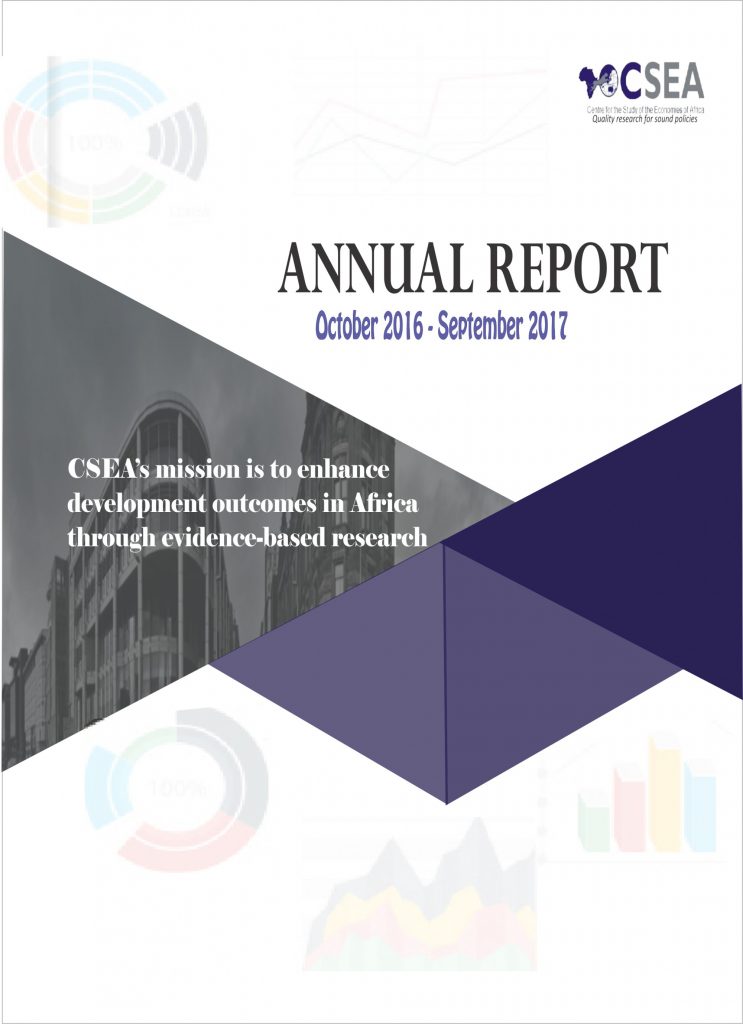As Nigeria is currently witnessing an economic and fiscal crisis, the need for evidence-based and timely research to guide policymakers in making informed decisions have become ever more useful. CSEA, as a leading think tank in Africa, with proximity to policymakers in the capital city of Abuja, is increasingly repositioning itself to track and analyse key developments in the Nigerian economy, and provide actionable recommendations. Thus the centre has strengthened its organizational structure, research capacity and quality, as well as its dissemination strategy to ensure that policy-relevant research is continuously channeled into the policy space
Annual Report

November 6, 2017
CSEA ANNUAL REPORT
As Nigeria is currently witnessing an economic and fiscal crisis, the need for evidence-based and timely research to guide policymakers in making informed decisions have become ever more useful. CSEA, as a leading think tank in Africa, with proximity to policymakers in the capital city of Abuja, is increasingly repositioning itself to track and analyse […]
Read →
Related
Nigeria Economic Update (Issue 26)
The All-Share index
(ASI) and Market Capitalization both depreciated (week-on-week) by 1.45 percent
for the second consecutive trading week- June 3, 2016 to June 10, 20166.
ASI depreciated by 401.8 points from 27,634.42 points to 27,232.62 points,
while Market Capitalization declined by N140billion from N9.49 trillion closing
the week at N9.35 trillion. All other indices declined, with the exception of NSE
ASem Index, NSE Insurance Index, and NSE oil/Gas Index. The delay in the
implementation of proposed forex policy continues to adversely affect stock
market performance. However, with growing speculations that the new FOREX
guidelines would be released in the succeeding week, market indices could
perform better subsequently. Hence, monetary authorities should ensure the timely
release and implementation of the new FOREX policy to boost investors
confidence in the near term and ensure price stability in the capital market.
